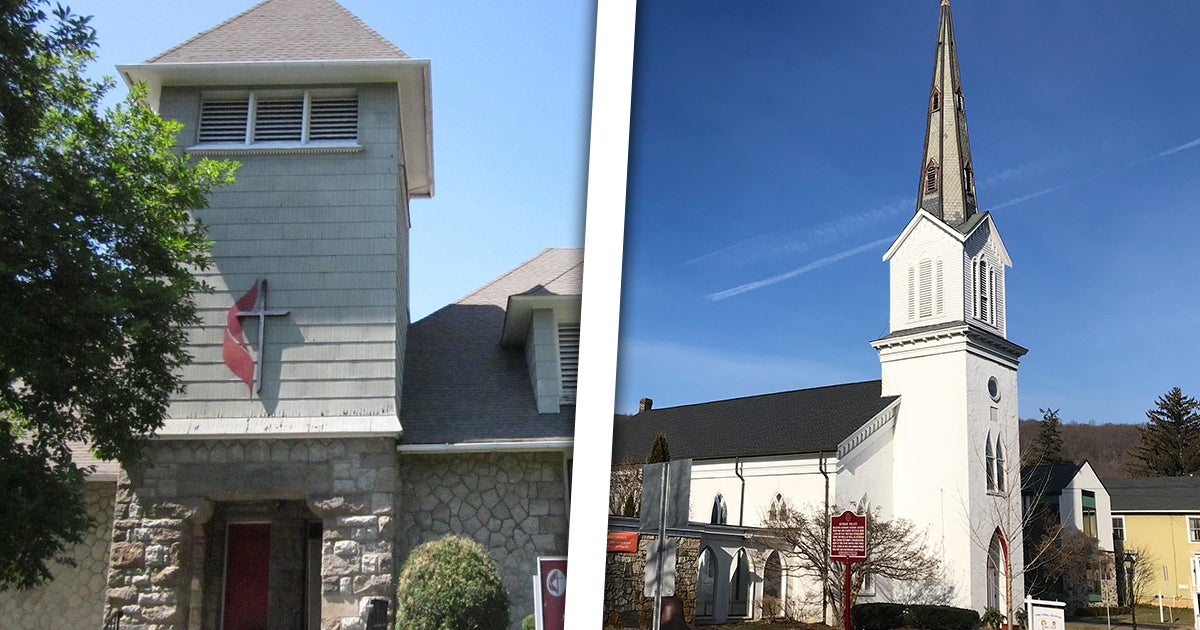
by Jorge Gomez • 5 min read
This week, First Liberty filed a federal lawsuit on behalf of two New Jersey churches that are being excluded from a grant program the state created to preserve and restore historic landmarks.
From the program’s inception in 2003 until as recently as 2017, churches and religious organizations with historical significance were eligible for––and in fact received––funding. For years, Morris County granted historic preservation funds to churches, totaling $4.6 million in public aid. Funds went toward repairing historic buildings—from roofs to bell towers, stained-glass windows and ventilation systems.
In 2018, however, the New Jersey Supreme Court ruled that the state constitution prohibits using taxpayer dollars to restore historic church buildings. Even though the county wanted to continue this long-standing practice of providing aid to churches, that ruling prevented it from allocating the funds.
As a result, the two houses of worship we’re representing, The Mendham Methodist Church and The Zion Lutheran Church Long Valley, applied for funding and were denied. Our lawsuit challenges the change of policy that led to churches being excluded from the Morris County Historic Preservation Trust Fund. Our attorneys explain:
“This is unconstitutional discrimination on the basis of religion: States and local governments that choose to provide a generally available public benefit—such as historic preservation grants—cannot exclude an otherwise-qualified applicant solely because the applicant happens to be a house of worship.”
While churches have been precluded from benefiting from the program, buildings that operate for exclusive functions and private purposes—such as the Morristown Community Theater, the Madison Masonic Lodge, the Woman’s Club of Morristown, and even a local restaurant—continue to receive historic preservation funds.
First Liberty attorney Jeremy Dys explains that “all forms of religious discrimination by the government are unconstitutional, including the denial of historic preservation grants to historic churches.”
“The Supreme Court has made it abundantly clear,” Dys added, “that religious institutions cannot be excluded from public funding programs like preservation grants simply because of their religious character or religious activities.”
In Trinity Lutheran v. Comer, the Supreme Court held that refusing to allow a church “solely because it is a church––to compete with secular organizations for a grant” constitutes an “express discrimination against religious exercise.” Similarly, in Espinoza v. Montana, the nation’s highest court held that a state law excluding religious schools from public benefits was unconstitutional discrimination based on religion.
In our victory last year in the Treat Children Fairly case (Carson v. Makin), the Supreme Court held that public tuition-assistance programs cannot discriminate against parents who send their children to religious schools. This case, however, set a precedent beyond religious education. It affirmed the principle that all government assistance programs must treat religious organizations and businesses the same as everyone else, and funds can’t be denied because program participants engage in religious activities. As our lawsuit explains, this First Liberty victory spelled the end of New Jersey’s discrimination against churches in the administration of its historic preservation program.
Excluding churches from participating in the grant program isn’t just in violation of the Constitution. It’s a disservice to the local community. The architecture of historic houses of worship are seen by all citizens and residents. Restoring and preserving historic churches enriches everyone, not just the congregants.
The Mendham Methodist Church and The Zion Lutheran Church Long Valley are places of historic significance in their communities. Mendham Methodist’s building, for example, is part of the Mendham Historic District, which is listed on both the State and National Registers of Historic Places. Its origins date back to 1833, when the church’s early members erected their first house of worship. In 1938, church members moved the building to its present location, hauling and laying the stone that still supports the structure today. Aside from its worship services, Mendham Methodist hosts various events open to the public, including a thrift shop, music lessons and concerts.
The first stone of Zion Lutheran’s property was laid in 1832. It is part of the German Valley Historic District, which is recognized on both the State and National Registers of Historic Places for its significance in agriculture, education, transportation, industry and religion. Zion Lutheran also hosts Alcoholics Anonymous meetings, Girl Scout and Cub Scout meetings and non-denominational funerals.
Discriminating against historic churches and denying them the opportunity to participate in a public program serves no public purpose and causes only harm to the community. Houses of worship, religious organizations and people of faith should not be treated more harshly than their secular counterparts. The Constitution and our federal laws prohibit such discrimination.
The battle to secure religious freedom for houses of worship in America is far from over. Churches, temples and synagogues continue to confront violations of their rights and freedoms. Please donate to First Liberty today, so we can keep fighting—and winning—for houses of worship across our country.